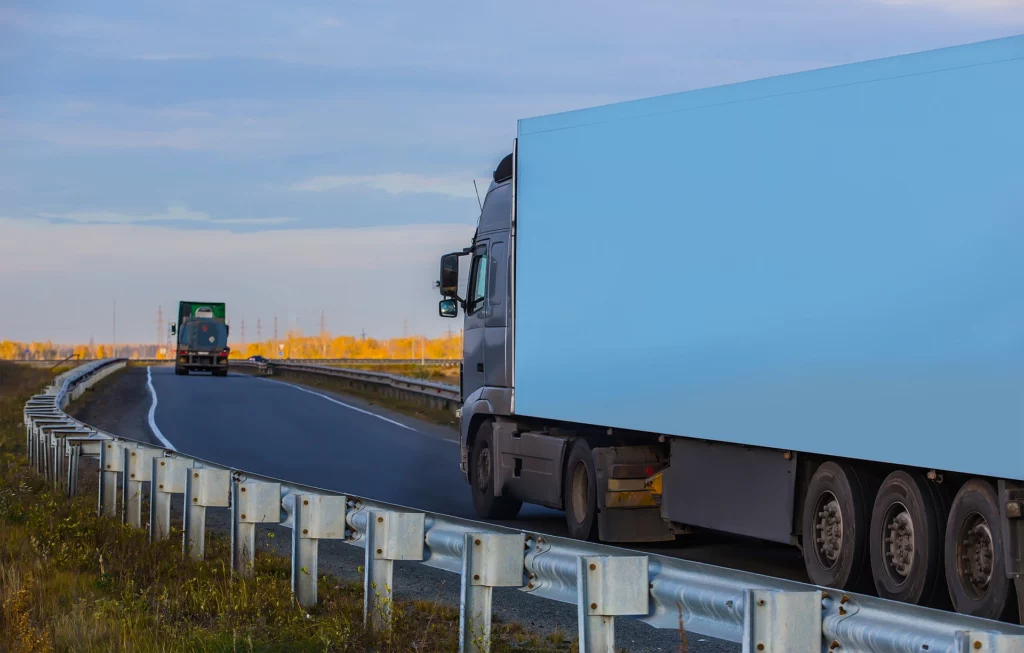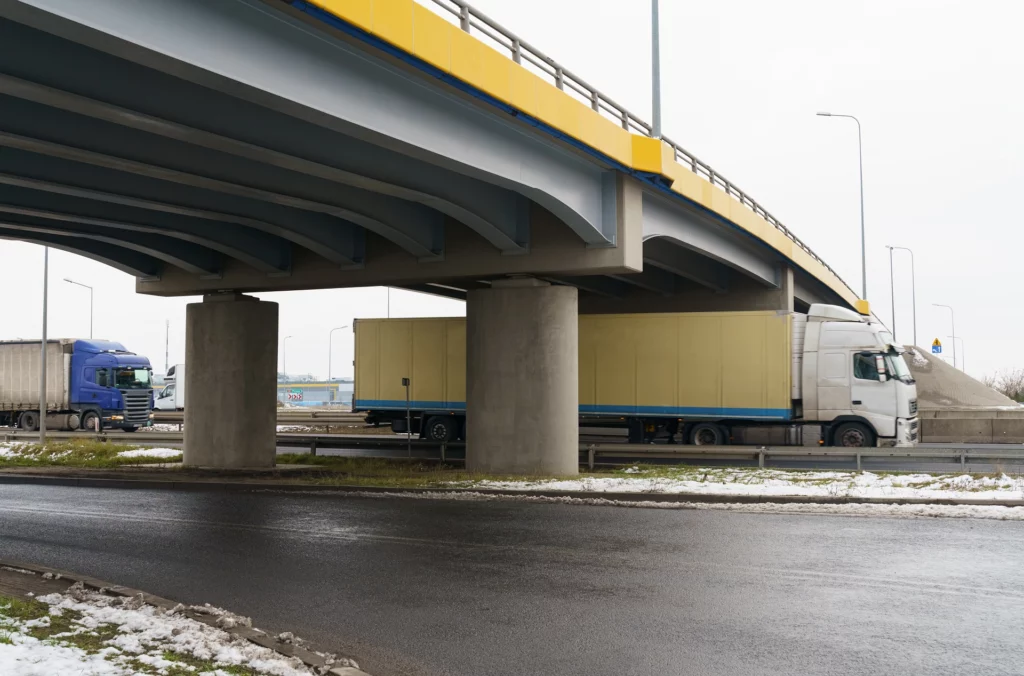Should I Use Speed Limiters on Trucks?

Wise Systems

Commercial trucking operations who must maintain the delicate balance between fleet efficiency, cost, and safety. There’s currently much discussion in the industry related to the use of speed limiters, which cap a vehicle’s maximum speed, on trucks and how this technology may help or hinder operations.
If you’re wondering if you should use speed limiters on trucks, keep reading as we discuss the potential advantages and disadvantages to help you make the right decision for your fleet.
In this article:
- What Are Speed Limiters?
- Benefits of Using Speed Limiters on Trucks
- Potential Downsides of Using Speed Limiters on Trucks
- Speed Limiters for Trucks May Soon Be Mandatory
- Should You Use Speed Limiters on Trucks?
- Final Thoughts
- Frequently Asked Questions
What Are Speed Limiters?
Speed limiters are devices installed in vehicles to limit their top speed. Also called speed governors, they can be set to a fixed or adjustable maximum speed.
They’re not the same as telematics devices, which collect data on driver behavior like rapid acceleration and speeding (among other data points) but don’t provide the ability to control the vehicle’s acceleration rate or speed. Speed limiters, on the other hand, aren’t designed for data collection but instead prevent a vehicle from exceeding a predetermined speed. In other words, speed limiters exhibit control, while telematics devices collect data.
Some modern vehicles come with built-in speed limiters. They can also be installed as aftermarket modifications.
Speed limiters can be installed on a wide range of vehicles, but their compatibility and effectiveness can vary depending on the type of automobile and its specific design and technology.
Benefits of Using Speed Limiters on Trucks

Speed limiters have been a topic of interest in the trucking and transportation industry for several years. Using speed limiters on your trucks can offer numerous advantages.
Safety
By limiting the maximum speed of a vehicle, speed limiters can help reduce the risk of accidents. This is particularly important for large vehicles like buses and trucks, which can cause significant damage to other vehicles and serious injuries to passengers in high-speed accidents.
Regulatory Compliance
According to the Truck Safety Coalition, the U.S. is the only leading country that doesn’t mandate the use of speed limiters on certain types of vehicles.
Countries in the European Union, Australia, Japan, and the Canadian provinces of Ontario and Quebec all require the use of speed limiters for heavy commercial vehicles. Mandated maximum speeds vary from 55 miles per hour in Japan to 65 miles per hour in Canada.
Soon, the U.S. may join the list of countries mandating the use of speed limiters on trucks. We’ll discuss this proposed legislation in more detail later in this article.
Fuel Efficiency
Different types of vehicles reach optimal fuel efficiency at different speeds. According to Truckstop, the optimal speed for most trucks is approximately 55 to 60 miles per hour.
Fuel is wasted when traveling faster than the vehicle’s optimal speed, but decreasing highway driving speeds can significantly reduce fuel consumption.
Environmental Benefits
Lower driving speeds translate to reduced emissions, at least on the highways. However, based on reports on the impact of speed reductions, it’s unclear whether the same is true for lowering driving speeds in urban areas, according to Energy News Network.
Fleet Management
Using speed limiters on trucks can help companies that manage vehicle fleets monitor and control driver behavior and how they use their vehicles, which can increase safety and help reduce costs—two key fleet management priorities.
Potential Downsides of Using Speed Limiters on Trucks

While there are clear benefits to using speed limiters on trucks, there are also potential downsides to consider.
Risks of Improper Installation
Installing a speed limiter should be done in compliance with the vehicle’s engineering specifications and local regulations. Improper installation can lead to vehicle malfunctions and safety hazards.
Reduced Driver Control in Emergencies
While speeding is generally considered an unsafe practice, there are some situations where the ability to accelerate quickly is crucial. For instance, a speed limiter may limit a driver’s ability to accelerate rapidly to avoid an accident.
Overtaking Challenges
Speed limiters can make it difficult for trucks to pass other vehicles safely, especially on single-lane roads. This can lead to long queues of vehicles behind slower-moving trucks. As a result, other drivers may become frustrated and attempt risky maneuvers.
Disrupting the Flow of Traffic
Trucks equipped with speed limiters may be traveling at lower speeds than other vehicles on the highway, which can lead to disruptions in the flow of traffic. This could lead to significant traffic congestion and delays, particularly in areas where trucks comprise a sizeable portion of road traffic.
Slower Delivery Times
Speed limiters can extend the amount of time it takes for trucks to complete their routes. This can have a domino effect, impacting delivery schedules and logistics efficiency.
Speed Limiters for Trucks May Soon Be Mandatory
Parking, speed limiters and broker issues were all on the agenda as OOIDA’s Lewie Pugh made the rounds recently in Washington, D.C. Listen to Land Line Now on your favorite podcast app.https://t.co/uYYLVLmzaY pic.twitter.com/xb9p9I1nwy
— Land Line Now (@Land_Line_Now) December 12, 2023
In September 2016, the Federal Motor Carrier Safety Administration (FMCSA) and National Highway Traffic Safety Administration (NHTSA) jointly issued a notice of proposed rulemaking that would require manufacturers to equip heavy trucks with speed limiters. Initially, the proposal would limit trucks to 68 miles per hour on highways.
However, in a supplemental notice of proposed rulemaking (SNPRM) in September 2023, FMCSA removed the specified maximum speed of 68 mph. Instead, it states that the maximum speed is to be determined at the time of rulemaking.
Should You Use Speed Limiters on Trucks?

The issue remains controversial due to the potential disadvantages of speed limiters, particularly those related to safety. However, it’s likely that upcoming legislation will require the use of speed limiters on heavy commercial trucks in some manner.
Using speed limiters on your trucks now will put your company ahead of the curve when and if such legislation passes. But ultimately, companies should carefully weigh the pros and cons of using speed limiters on trucks with their unique operations and requirements in mind to determine whether installing this technology will benefit the business in the short term.
Final Thoughts
Speed limiters can benefit your fleet operations in some ways, but they’re not the only way to make gains such as improved safety and reduced emissions. The Wise Systems delivery automation platform offers a suite of solutions for every stage of the delivery process, from routing and dispatch to strategic planning and performance management.
Request a demo today to discover how Wise Systems can help your company maximize safety and efficiency while minimizing costs.
Frequently Asked Questions
How do speed limiters work?
Speed limiters work by restricting the engine’s power output once a vehicle reaches a preset speed. They are connected to the vehicle’s electronic control unit (ECU), which monitors the speed through sensors.
When the vehicle hits the programmed speed limit, the speed governor prevents further acceleration by either reducing the fuel supply to the engine or electronically controlling the throttle. This ensures that the vehicle does not exceed the set speed.
Does a speed limiter save gas?
Yes, a speed limiter can save gas in some cases. By preventing a vehicle from exceeding a certain speed, typically where the engine is most efficient, it reduces excessive fuel consumption.
Driving at consistently high speeds usually leads to increased fuel usage, so maintaining a moderate speed with a limiter can improve fuel efficiency.
Can speed limiters be disabled?
Technically, speed limiters can be disabled, but it’s not advisable for several reasons. Disabling a speed limiter might violate traffic safety laws, especially in jurisdictions where their use is mandatory for certain vehicles.
Disabling a speed governor can also void the vehicle’s warranty and potentially increase the risk of accidents due to higher speeds. If a speed limiter must be disabled or adjusted, it should be done by a professional, ensuring compliance with all relevant laws and safety standards, as well as the vehicle’s specifications.
Who has the power to change speed limits?
The authority to change speed limits typically lies with government bodies or transport authorities at various levels, such as municipal, regional, or national governments. These entities analyze road safety, traffic flow, and urban development data to set appropriate speed limits.
In the case of speed limiters on vehicles, manufacturers set initial limits, but these can sometimes be adjusted within legal boundaries by authorized service centers or fleet managers.

